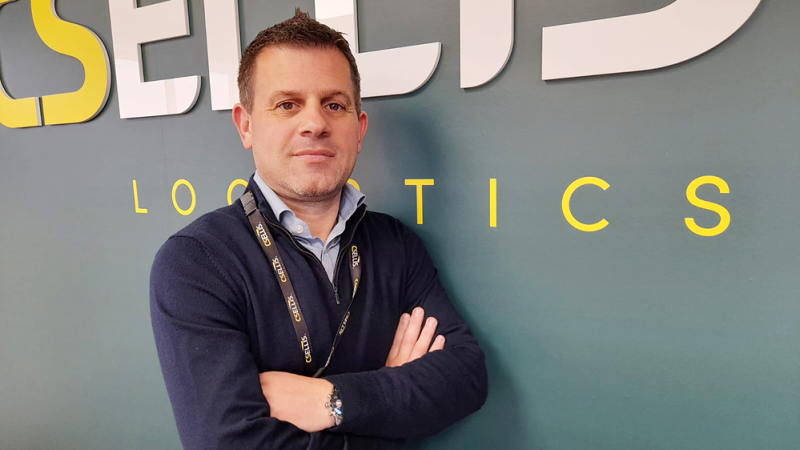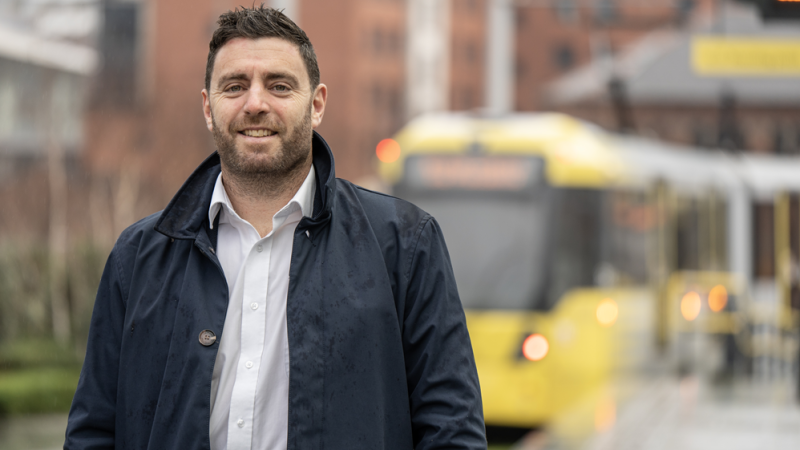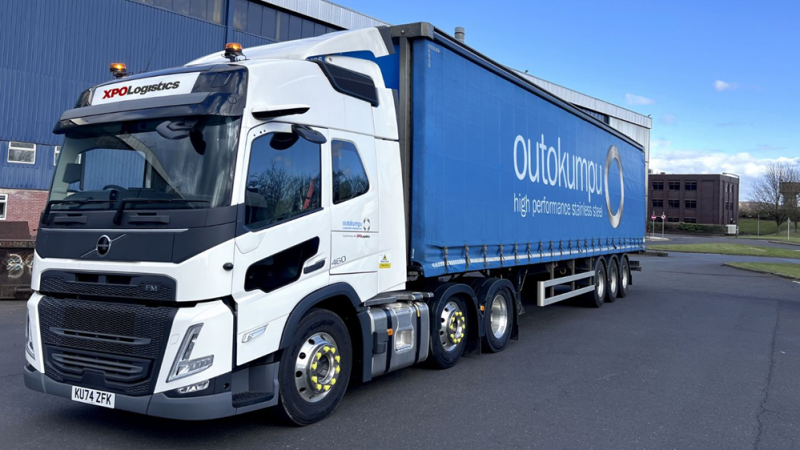Stevens Trucking was founded in 1979 by one Kenny Stevens. Back then the company was a single pick-up truck in Oklahoma.
“My dad likes to joke that he hauled more things on the floor of his pick-up in those first six months than he did in the bed of it, because it was pretty rough and he was the new kid on the block,” says Cole Stevens, Kenny’s son and the company’s Chief Strategy Officer.
The company was active in the oil field flatbed division for 20 years. When there was a downturn in the oil field sector, Kenny Stevens decided to diversify, taking his business into the dry-van truckload and general freight segment.
In the 25 years since then, Stevens Trucking has grown to run a fleet of nearly 400 tractors and 1,700 dry-van trailers.
“We have serviced almost every sector imaginable in some capacity, and we are now a fully national US carrier,” says Cole Stevens.
Stevens Trucking has been able to operate across so many commercial, industrial, and geographic sectors because of its deeply ingrained culture of innovation.
“Now that we have grown, we have attained a scale that can provide a multimodal approach to truckload commodities,” Stevens tells us. “We can carry out brokerage and continue to invest in different commodities that allow us to be faster and more cost-effective.”
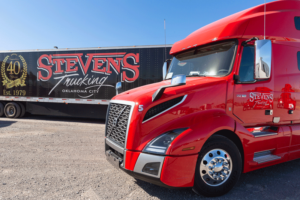 Navigating the Unknowns
Navigating the Unknowns
That culture of innovation was more valuable than ever during the Covid pandemic. As Stevens explains, the freight sector has always followed a boom-and-bust cycle, but throughout the pandemic, the market was more volatile than ever.
“It totally shut the entire world supply chain down for almost a full month,” Stevens recalls. “It was pretty intensive and worrisome to navigate almost 500 employees through social distancing and safety precautions. At the same time, truck drivers kept America moving at a time when our infrastructure and supply chain were extremely lean. Those men and women were on the front line, truly keeping the world moving.”
It was a period when no business really knew what to expect, and Stevens is the first to admit it was a scary time.
“But at the same time, we had a duty to support our driver force,” Stevens says. “Our family showed up every day. From the peak of Covid in March 2020 to June 2020, I was in the office for 92 days straight. We cancelled our spring break vacation. I was in here on Easter Sunday and Memorial Day so that we could keep the doors open for our employees and be there to support our drivers who were delivering critical goods.”
Then, in June of that year, the economy flipped again, the biggest priority became the competition for new drivers and labourers as the economy responded to capital injections.
“It made it a challenge to manage year-long contracts when you could not see your fixed and variable costs with those swings,” Stevens says.
That competition for talent has continued to be a factor for Stevens Trucking, and once more the company’s sense of innovation has proven to give it a valuable edge.
“We are always trying to find ways to utilise emerging technology and become more efficient in everything we do, whether that is maintenance, new equipment or operational tools,” Stevens says. “It allows us to expand our operating margins, and then with those expanding operating margins we can continue to invest in our employees. If we can become more efficient, we can pay our people top dollar for the work they are doing, which in turn lets us ask our customers for slightly higher prices because we can outpace our competitors.”
While Stevens Trucking’s approach has performed well under the pressures of the pandemic and ensuing supply chain challenges, it has also learned lessons from the experience.
“It really probed our theory and thought processes, and confirmed our belief that if you honour your long-term commitments you are going to develop deeper relationships and partnerships with your employees and customers,” Stevens reflects. “Really tough times like that create a lot of camaraderie, internally and externally. Going through that major conflict with each other creates a lot more trust within your organisation. Our employees have our back as an employer, and we have our employees’ and customers’ backs.”
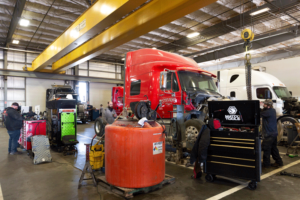 Taking Innovation Forward
Taking Innovation Forward
Moving forward to today, Stevens reflects that 2023 saw one of the worst markets in terms of the ratio of prices compared to inflated costs. Fortunately, the firm’s long-standing relationships are paying dividends.
“We really had the favour returned,” Stevens says. “We had good customers willing to pay a bit more during this downmarket because we didn’t gouge them or fail them during Covid.”
To further support those customers, Stevens Trucking is bringing its enthusiasm for innovation to bear.
“We are looking at automated pricing tools, fleet optimisation platforms, and load absorption platforms that are customised to handle the many moving parts involved in logistics,” Stevens says. “When you are talking about 2,000 pieces of equipment moving across the country with 350 drivers, it is a lot to ask of 30 human beings to keep up with all the facets within that. So, we focus on the human element, which is our driving force, and how to help them.”
This is even more important in the face of growing pressure and expectations from the market. When Stevens started working in the industry eight years ago, getting a delivery to its destination on time to the day was considered good service. In the age of e-commerce with telematics and same-day delivery as standard, customer expectations have risen.
“With large businesses in our business-to-business service industry, it has created a lot of pressure to deliver on time to the minute, because the supply chain is running so lean,” explains Stevens. “This is why we are investing in technology. Not to replace anyone, but to give our labour force a higher return on their investment.”
This is why Stevens has come to think of the company as less of a trucking company that invests in technology, and more like a technology company that does trucking.
“Everyone should think of themselves as a technology company in today’s workspace,” Stevens says.
Looking at the company’s long-term prospects, Stevens’s priorities are organic growth while keeping up with the rapidly developing technology in the field.
“We have a young management group that is ready to harness that technology for the sake of our current employees, giving them the tools to enhance their skills and ultimately take their share of the profits,” Stevens says. “If we have 500 employees, we can use emerging technologies to become more efficient and do much more with those same 500 employees. The scalability of our business goes up, they become higher-skilled, and their pay goes up.”




